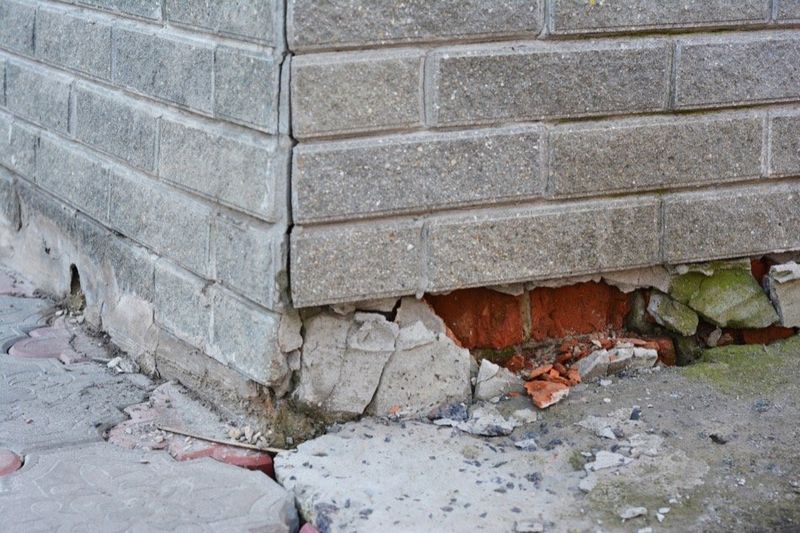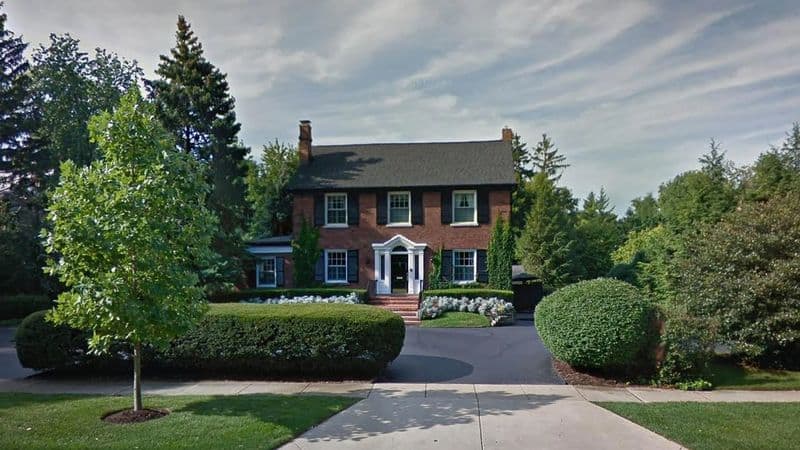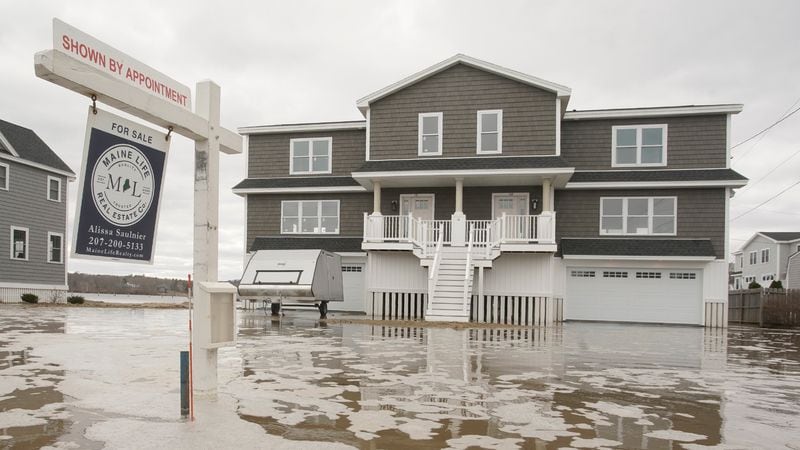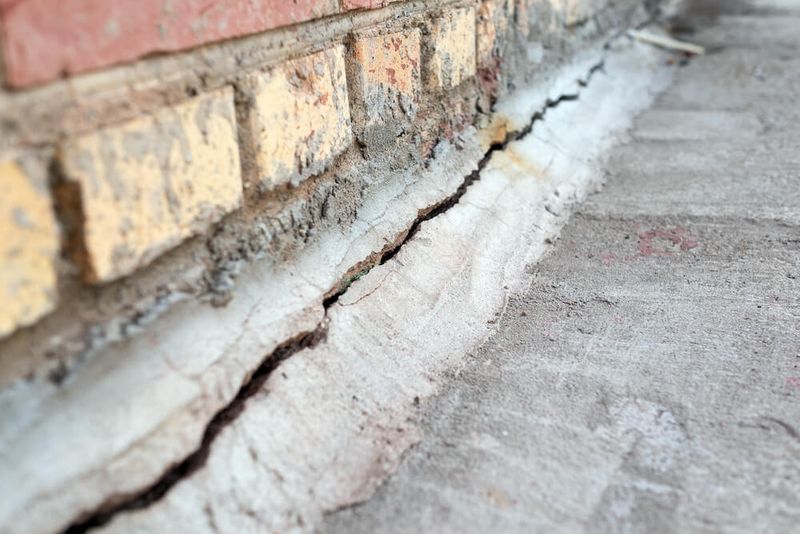In the world of real estate, seasoned professionals often encounter certain red flags that make them pause before purchasing a home.
Whether it’s the location or the property’s history, these factors can significantly influence the decision-making process.
Here, we delve into the 10 critical aspects that can make even the most enthusiastic buyer reconsider.
1. Strange Odors

Imagine stepping into a home and being greeted by an inexplicable smell.
It might seem trivial, but for seasoned real estate professionals, strange odors are a cause for concern. An embedded scent could indicate hidden problems, such as mold or poor ventilation.
These issues could mean costly repairs down the line. Moreover, unpleasant smells might deter future buyers, affecting resale value.
Detecting the source is crucial, and if it’s severe, walking away might be the best move.
Trusting your nose can save you from unexpected surprises, making it a valuable tool in property assessment.
2. Deferred Maintenance

Deferred maintenance is a red flag that shouts caution to real estate veterans. When a homeowner postpones necessary repairs, it often suggests underlying neglect, which could lead to larger issues.
A home with deferred maintenance might require significant investment to bring it up to standard. This includes fixing structural problems, updating outdated systems, and more.
The cumulative costs can quickly add up, turning a seemingly good deal into a financial burden.
For those in the know, spotting these issues early can help in negotiating a better price or deciding against the purchase altogether.
3. Neighborhood Decline

The neighborhood’s health is often a priority for real estate pros, and signs of decline can be a deal-breaker. Decreasing property values, abandoned buildings, and increased crime rates are warning signs.
Investing in a declining area may result in a difficult resale situation. Real estate experts understand that the community’s trajectory affects long-term property value.
Researching local developments, future projects, and demographic shifts can provide insights into whether the neighborhood is on a rebound or further decline.
A well-informed decision can avoid potential pitfalls associated with fading locales.
4. Problematic Neighbors

Even the most charming house can be overshadowed by challenging neighbors. For real estate professionals, a peaceful community is key, and problematic neighbors can deter potential buyers.
Noise complaints, neglectful property upkeep, or notorious behaviors can all negatively impact a home’s appeal. These issues are often irreversible, making it crucial to assess the neighborhood thoroughly.
A memorable house visit might include observing the surroundings or talking to locals about their experiences.
Knowledge of neighbor dynamics can influence a buyer’s decision and ensure a harmonious living environment.
5. Questionable Renovations

Not all renovations are created equal, and for real estate pros, questionable updates can raise concerns. Outdated design choices or poor craftsmanship can detract from a property’s appeal.
Misaligned styles or shoddy work may require additional expenses to rectify. This affects the home’s marketability and reduces its value.
Real estate experts often scrutinize renovations to assess their quality and coherence with the home’s character.
Understanding the difference between a well-executed update and a potential money pit is crucial to making a wise investment decision.
6. Pest Infestations

Few things can make a real estate agent hesitate more than signs of pest infestations. Whether it’s termites, rodents, or other unwelcome guests, these can indicate serious structural issues.
An infestation might require substantial extermination efforts and repairs. These problems can be hidden, making inspections essential.
Real estate pros know that pests can cause damage that isn’t immediately visible.
Identifying an infestation early can prevent future headaches and financial losses. This vigilance ensures the property remains a sound investment without unexpected complications.
7. Complicated Ownership History

A tangled ownership history can be a warning sign for real estate professionals. Frequent changes in ownership might suggest underlying problems with the property.
These could include legal disputes, hidden liens, or structural issues that previous owners wanted to escape. Investigating the property’s history thoroughly can reveal red flags worth noting.
For real estate experts, understanding the context of these changes helps in making informed decisions.
It prevents potential legal hurdles and ensures a smoother transaction process for future buyers.
8. Flood Zone Location

Buying a home in a flood zone requires extra caution from real estate professionals. The risk of flooding can mean costly insurance and potential water damage.
Properties in flood-prone areas might face increased upkeep and unpredictable repair needs.
Understanding flood maps and insurance requirements is crucial for assessing the long-term viability of such investments.
Real estate experts weigh these factors heavily, as they influence both the safety and financial aspects of property ownership. Identifying a flood zone early allows for better risk management.
9. Foundation Issues

Foundation issues are major red flags for those experienced in real estate. Cracks, uneven floors, or misaligned doors can indicate significant structural concerns.
Such problems often entail expensive repairs and can reduce a home’s value significantly. Real estate professionals prioritize thorough inspections to detect these issues early.
Understanding the extent of foundation damage helps in determining the true value of a property and whether it represents a wise investment. It’s a critical step for ensuring long-term stability and safety.
10. Unclear Zoning Laws

Navigating unclear zoning laws can be daunting for real estate pros. These laws dictate how a property can be used, and misunderstandings can lead to costly mistakes.
Ambiguous zoning can limit development potential or cause legal disputes. Real estate experts delve into local regulations to ensure compliance and avoid unexpected changes in property use.
Ensuring clarity in zoning helps secure the property’s future potential and aligns with investment goals.
It’s a proactive approach that safeguards against unforeseen obstacles in property management.

